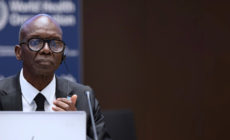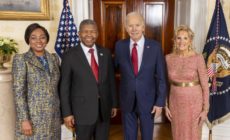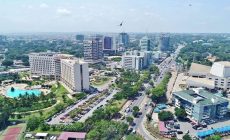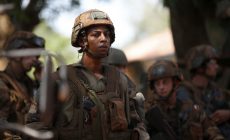She said it was important to stem migration at its source.
Germany took in more than one million irregular migrants last year – many from war-ravaged Syria, Iraq and Afghanistan, but also many fleeing economic hardship across Africa.
Migration is expected to be a key issue in next year’s federal elections, though Mrs Merkel has not yet declared whether she will seek a fourth term as chancellor.
Ethiopia hosts 700,000 refugees —one of the highest rates in Africa, according to the UN refugee agency.
Some 90 per cent of migrants who reach Libya — a jumping-off point for the perilous sea crossing to Europe —are said to pass through Niger.
And on her visits to Mali and Niger earlier in the week, Mrs Merkel highlighted the deadly desert crossing that African migrants undertake even before reaching the Mediterranean.
In coming days, she will also host leaders from Chad and Nigeria back home in Germany.
Commentators say this flurry of diplomacy illustrates how deeply the migration crisis is affecting the foreign policy of arguably the European Union’s most powerful nation.
In Mali, Mrs Merkel pledged more support to fight drug-and people-smuggling, as well as the country’s agricultural sector.
She also said Germany would give extra help to stabilise the north, where jihadist groups still operate. Germany already has 550 troops in Mali.
In Niger, Mrs Merkel pledged aid for both development and military equipment. Germany will also build a military base to support the UN mission in neighbouring Mali.
Migration was also on the agenda for talks with Ethiopian Prime Minister Hailemariam Desalegn.
Historically Germany has had a tiny influence on the African continent when compared with France or Britain.
But Mrs Merkel said before her trip that Germans should “take a far greater interest in Africa’s destiny”.
“The wellbeing of Africa is in Germany’s interest,” she said.











 (Selorm) |
(Selorm) |  (Nana Kwesi)
(Nana Kwesi)